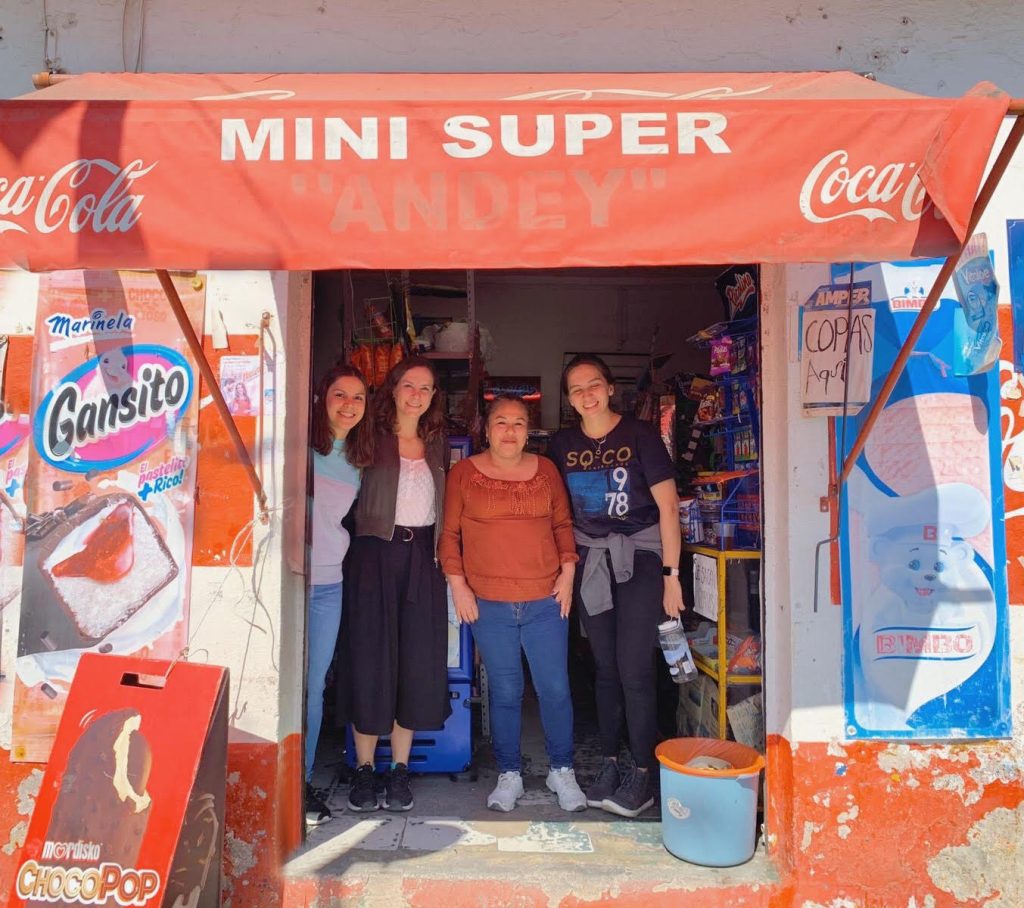Using technology to increase financial inclusion and build community in Latin America

MiLibreta is the winner of the 2020 Center for the Advancement of Social Entrepreneurship (CASE) Launch Pad prize, which awards $10,000 and mentorship to current MBA students with an idea for a social enterprise. MiLibreta is a mobile accounting system that allows small businesses to register daily operations. Through collecting this data, MiLibreta aims to reduce microfinance institutions’ operational costs by specifically digitizing credit risk assessments. This innovation will help microfinance institutions increase efficiency, lower interest rates and, therefore, serve more micro-entrepreneurs.
“MiLibreta takes advantage of the opportunity that technology provides and uses it to scale microfinance institutions to provide loans to business owners so that they can provide for their families, and, ultimately, give back to the community,” said Gutierrez, class of 2020 MBA student and MiLibreta co-founder, who is inspired to give back to her community by her father, who grew up in a low-income family and was able to get out of poverty by building and growing his business.
MiLibreta’s Story:
Ten years ago, after one particularly long day at her former volunteer job in a nonprofit microfinance program, Josefina Van Thienen, a class of 2020 MBA student at Duke University’s Fuqua School of Business, ran into a man whom she had helped provide with a microloan, which is a small sum of money lent to a micro-enterprise. This micro-entrepreneur, who lived in an informal settling in Buenos Aires suburbs in Argentina and was formerly unemployed, was able to build his own bakery from scratch, sustain his family, hire employees and grow his confidence in two years with help of the microloan program. Hearing his story, Van Thienen realized the extensive positive impact that microfinance institutions can have in society and, for the first time, realized her passion for financial inclusion.
“Through this man’s story and through the stories of many micro-business owners in low-income areas where I was coordinating the microloan program, I saw the powerful impact that microloans can have on entire communities,” said Van Thienen. “I feel passionate that, if we can remove barriers for financial inclusion, then we can empower change within so many social issues – from hunger to housing.”
By definition, financial inclusion is the effort to make financial services and products accessible and affordable to everyone. However, there are many barriers and obstacles to achieving financial inclusion, including that many low-income small-business owners lack access to the capital and financial services support that would give them the opportunity to grow.
“In Latin America and the Caribbean alone, there are 26.2 million micro-businesses that represent the main source of income for many impoverished families,” said Van Thienen, who is from the region. “Yet, many of these families have such difficulty achieving a higher-income level because they cannot secure formal financial mechanisms, making it harder for them to achieve stability and causing them to assume more financial risk should they try to scale.”
While there are about 1,000 microfinance institutions in Latin America that are working to assist these small business owners, they often have very high interest rates on average due to the high-operational costs, such as staff time, needed to provide small loans. As a result, the World Bank reports that there is a $1 trillion financial gap in the region – which is far from achieving financial inclusion.
“After seeing firsthand how microloans can change not only someone’s life, but also transform a community, I knew that there had to be a way to scale them in Latin America to work towards more financial inclusion,” said Van Thienen. “During summer and fall 2019, I worked with Ana Neri and Laura Gutierrez, Fuqua classmates who are also from Latin America with a vast experience in finance and microfinance, to perform research, which resulted in the creation of MiLibreta: a social enterprise that will leverage technology to lower the operational costs of microfinance institutions and promote financial inclusion.”
MiLibreta Moving Forward:
As the MiLibreta team members look forward to scaling their own enterprise, the CASE Launch Pad award is providing them with the opportunity to work with a prospective client to launch a pilot of the platform in July.
“We were in Mexico doing time-intensive research for the project when we received the notification about winning the award and it really was the affirmation we needed to keep going,” said Neri, class of 2020 MBA student and MiLibreta co-founder. “We are excited to move forward with the pilot, especially now, with the COVID-19 crisis in full swing, because we know that many businesses in our communities have economic challenges ahead and we want to be there to assist.”
For more information on CASE’s work within financial inclusion, please read the journey to impact at scale of Fundación Capital, an organization that brings together public and private sector partners to create programs for sustainable economic opportunity, as part of our Scaling Pathways series. For more information about CASE student programs, such as the Launch Pad, please visit our website.
